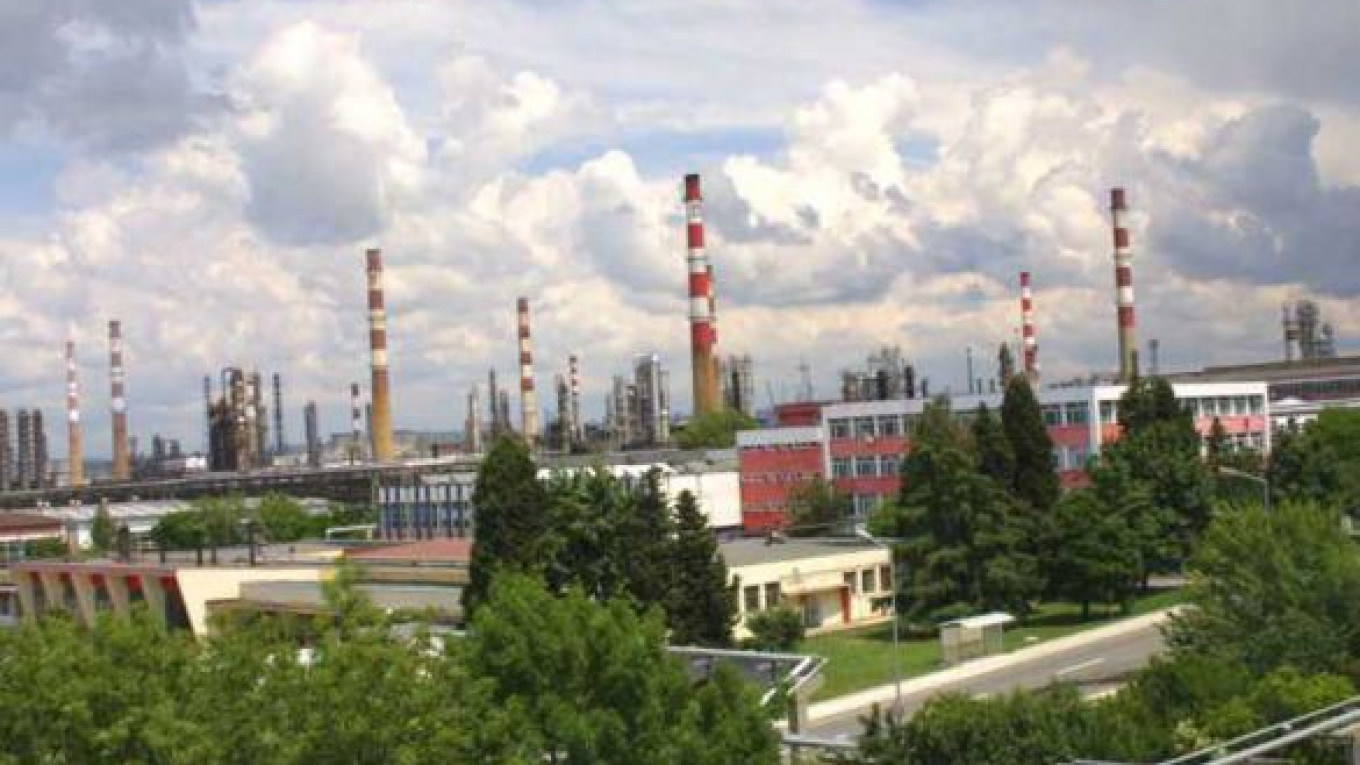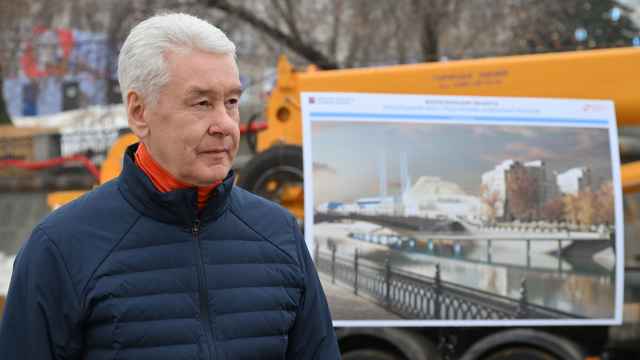SOFIA, Bulgaria — Boiko Borisov took power pledging better terms for Bulgaria in energy deals with Russia, kicking off a drive that has sparked a battle with oil giant LUKoil just two months before presidential polls.
Bulgaria is the European Union's poorest country and its annual gross domestic product is smaller than the market value of LUKoil, whose Burgas refinery is the country's largest.
Yet the government has shown little hesitation in going after the firm, angered after it missed a June deadline to install meters needed to monitor production and allow authorities to set taxes.
Analysts say the dispute, which comes amid others over a planned nuclear plant and gas pipelines, illustrates Sofia's increasing push for a stronger role in its relations with long-time ally Russia.
"The move on LUKoil sent a clear signal that Bulgaria is hardening its position and is willing to stand up for its interests in the other Russian-led projects as well," said Ruslan Stefanov, an economics expert with Sofia's independent Center for the Study of Democracy.
Last month, Bulgaria's customs office prompted a temporary shutdown of LUKoil's 142,000-barrel-per-day Burgas refinery in the tax dispute.
An anti-monopoly watchdog also launched a probe into LUKoil's potential abuse of its dominant market position.
Both Sofia and LUKoil have indicated that a compromise is likely, but the skirmish underscores the fact that Bulgaria, like other former Soviet satellite states, is increasingly wary of Russian involvement in its energy sector, equating even private investment as an attempt by Moscow to increase its political clout.
"Resistance is greater to projects with Russian state participation," said Sergei Kondratyev, senior expert at the Institute for Energy and Finance in Moscow.
Those fears intensified after winter 2009 when a dispute between Ukraine and Russia shut off gas to the region, hitting Balkan countries hardest and leaving many without heat in freezing temperatures.
And the risks for Bulgaria are no smaller, as it relies on Russia for more than 70 percent of its energy needs. "It is not easy for any Bulgarian government to stand up against the enormous ... machine which is the Russian corporate interest on Bulgarian territory," said Ognian Minchev, an analyst with the Institute for Regional and International Studies.
The Burgas plant alone supports some 6,000 jobs, and its payments to the state budget in the first six months of the year accounted for 13 percent of Bulgaria's tax revenues.
Yet Borisov has little to lose from taking a tougher line as his government faces local and presidential elections in October having survived no-confidence motions in June and July, its popularity hit by economic problems and delays to promised reforms.
High inflation, which has piled more pressure on already low incomes, unemployment and a wiretapping scandal have further eroded the ruling GERB party's popularity, while Sofia also faces pressure from EU authorities in Brussels to do more to stamp out high-level corruption.
The government's efforts have included pushing to revise terms of a 2006 deal signed with Russian state firm Atomstroiexport to build the 2,000-megawatt Belene nuclear power plant on the Danube River, a project estimated at more than 10 billion euros ($14.4 billion).
Borisov's government has sought a better price and tried to attract new Western investors after Germany's RWE abandoned the project.
The Russian firm responded in July by taking Bulgarian power utility NEK to arbitration, seeking 58 million euros ($83 million) over delayed payments.
"The spat [with LUKoil] represents a significant escalation in the current standoff between Russia and Bulgaria," said IHS energy analyst Kash Burchett.
"It is tempting to see the license revocation [at the Burgas refinery by customs authorities] as retaliation for Atomstroiexport taking NEK to arbitration."
The government, under pressure from Washington and Brussels to lessen Russian involvement in its energy sector, is also negotiating a number of pipeline deals with Moscow.
It has effectively blocked a trans-Balkan oil pipeline aimed at transporting Russian crude from the Black Sea port of Burgas to Greece, citing environment concerns.
Yet Bulgaria remains key to Russian firm Gazprom's planned South Stream gas pipeline.
The $21.5 billion project would carry Russian liquefied natural gas, or LNG, beneath the Black Sea and across Bulgaria and other countries to Western Europe.
Bulgaria has sought to link its participation with bigger concessions in new gas supply deals, negotiations that have irked the Russians.
"Relations have been worsening ever since this cabinet came to office," said Sergei Vakhrameev, senior analyst at Russian investment financial company Metropol. "If it continues this way, it will just have to part with Russian investment."
LUKoil Overseas, operator of the company's international upstream project, saw its net profit come to $1.08 billion for 2010, up 150 percent from 2009, the company said in its annual financial report, Interfax reported.
Profit was largely driven by sharp growth in hydrocarbon prices in 2010 and the fact that the company received $438.4 million in revenue for the third quarter of last year following the positive resolution of a corporate dispute regarding a project in Kazakhstan.
A Message from The Moscow Times:
Dear readers,
We are facing unprecedented challenges. Russia's Prosecutor General's Office has designated The Moscow Times as an "undesirable" organization, criminalizing our work and putting our staff at risk of prosecution. This follows our earlier unjust labeling as a "foreign agent."
These actions are direct attempts to silence independent journalism in Russia. The authorities claim our work "discredits the decisions of the Russian leadership." We see things differently: we strive to provide accurate, unbiased reporting on Russia.
We, the journalists of The Moscow Times, refuse to be silenced. But to continue our work, we need your help.
Your support, no matter how small, makes a world of difference. If you can, please support us monthly starting from just $2. It's quick to set up, and every contribution makes a significant impact.
By supporting The Moscow Times, you're defending open, independent journalism in the face of repression. Thank you for standing with us.
Remind me later.






